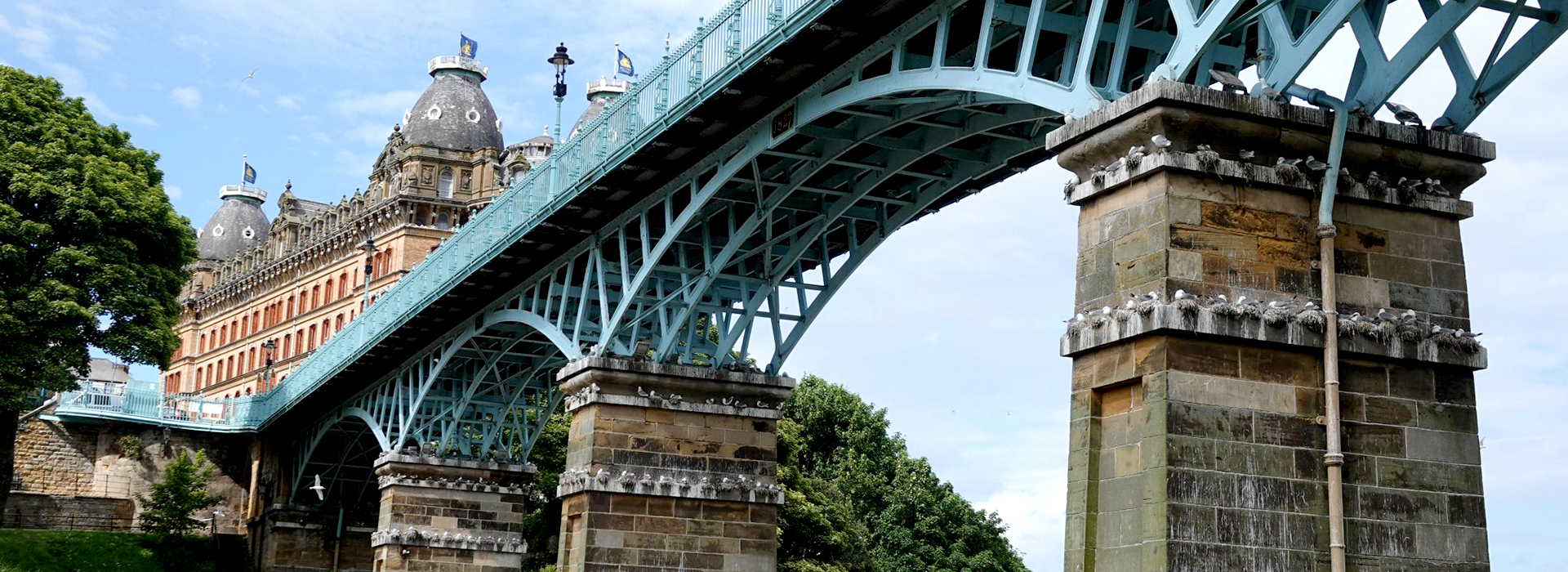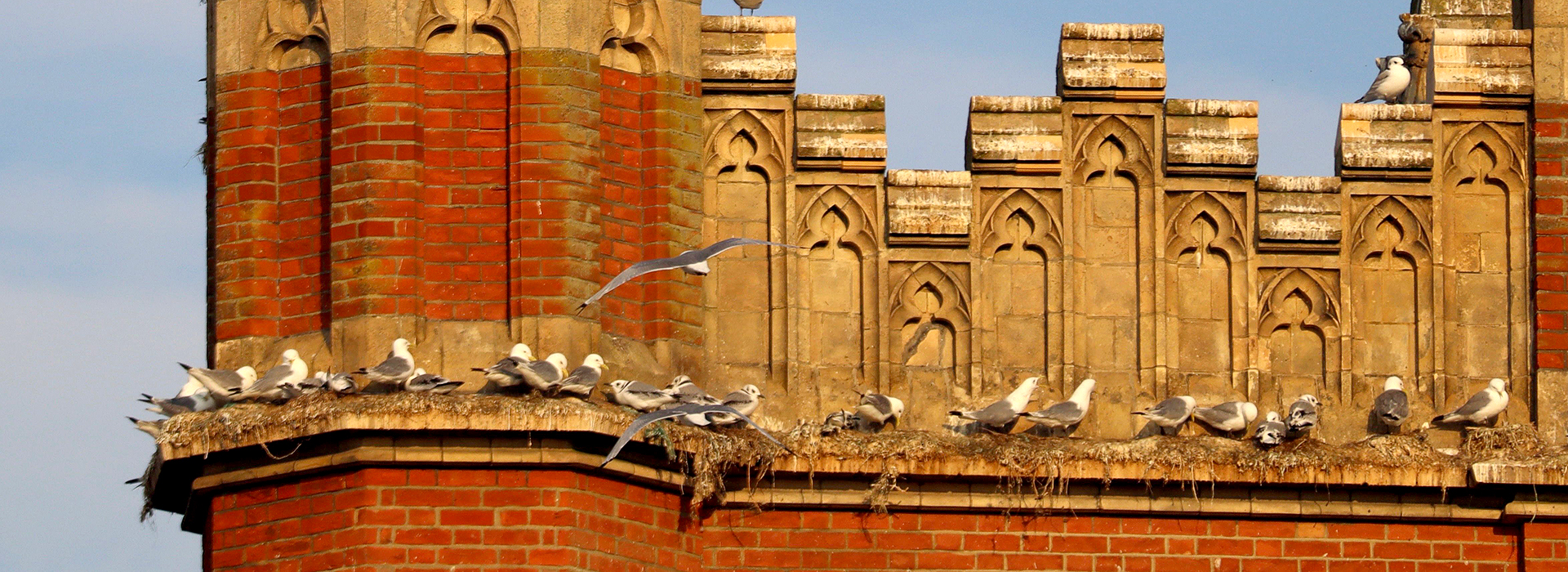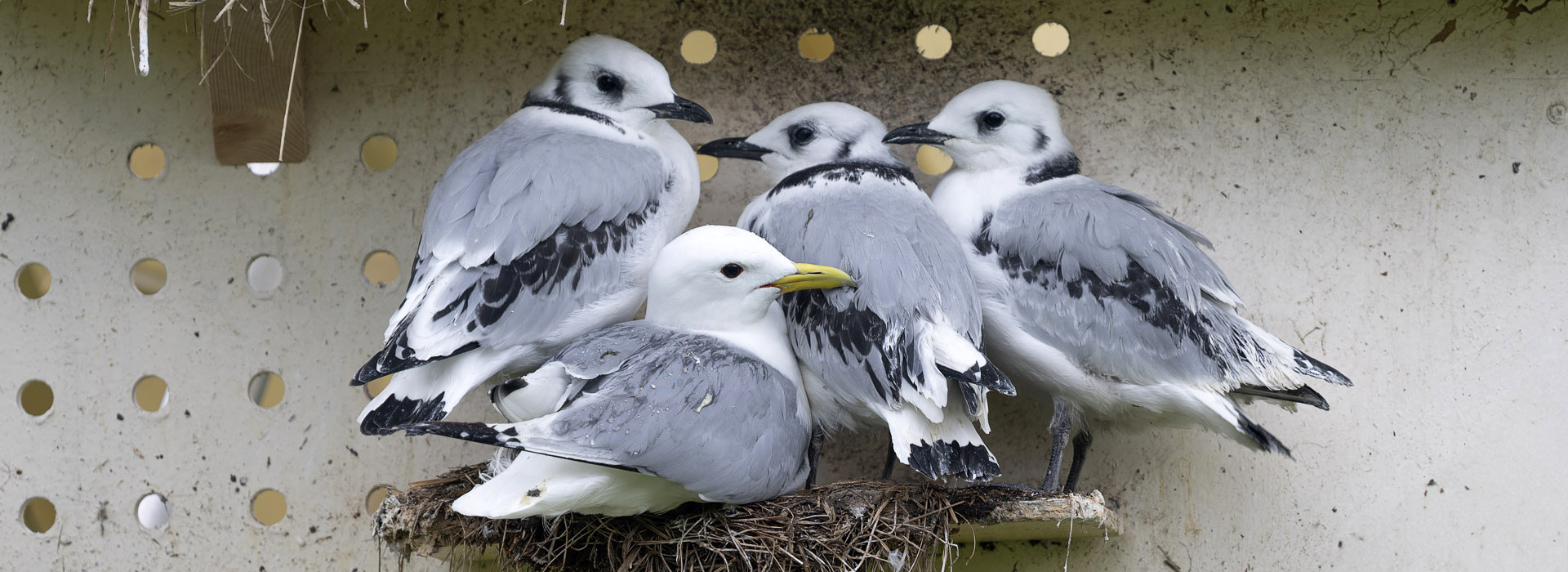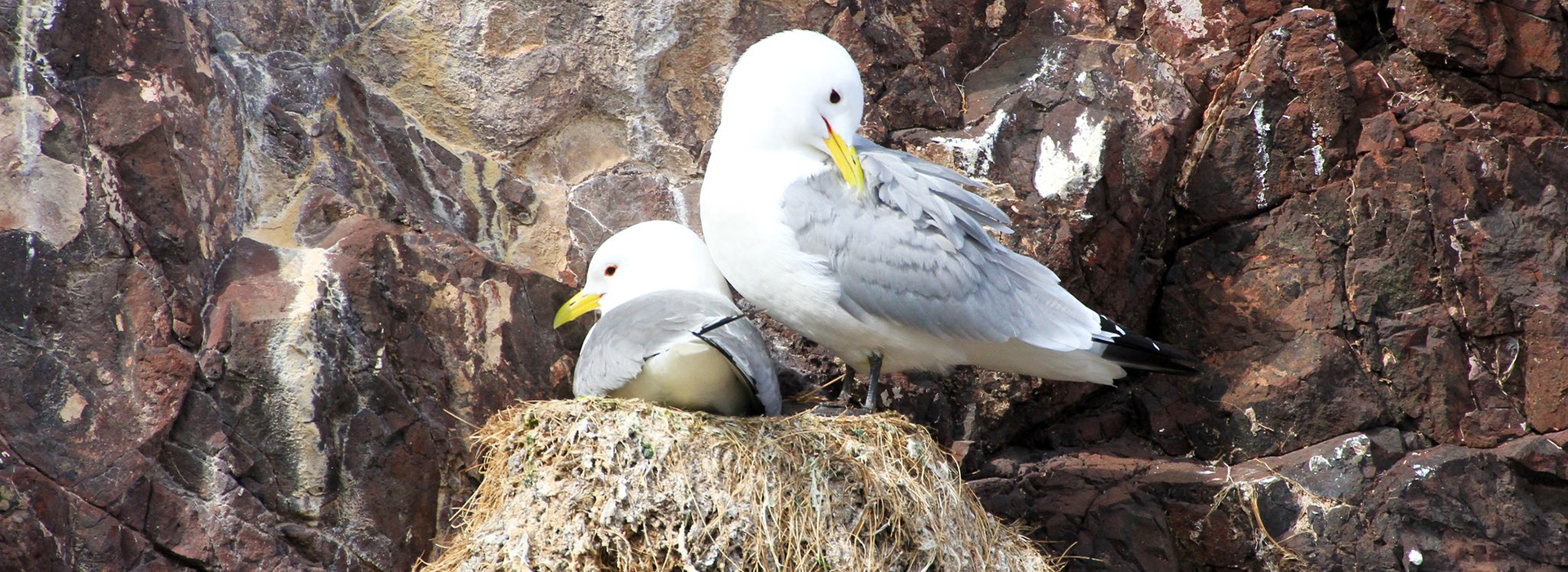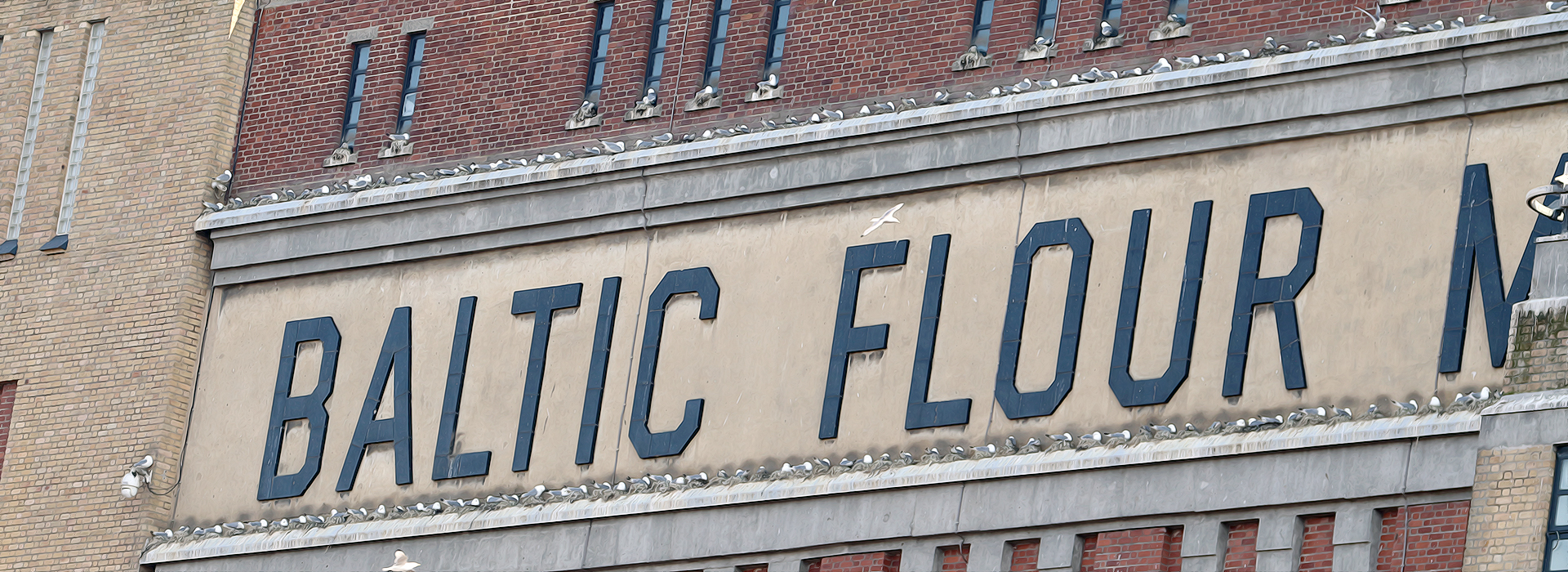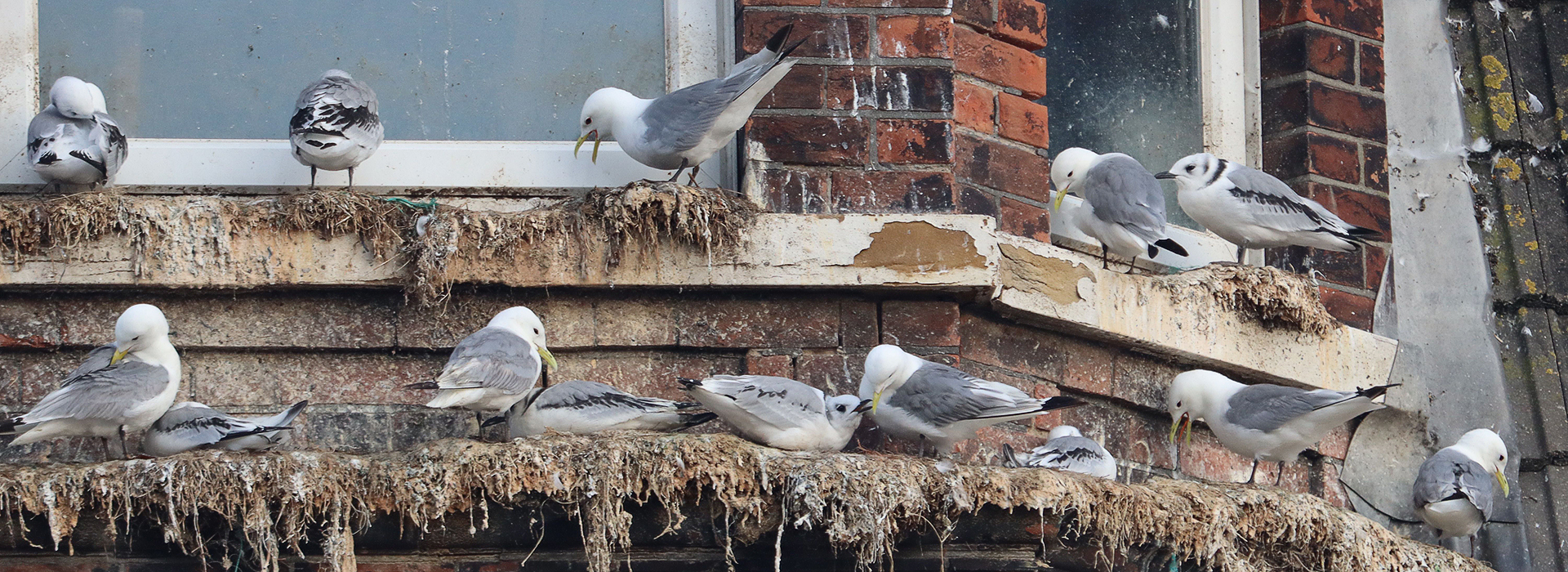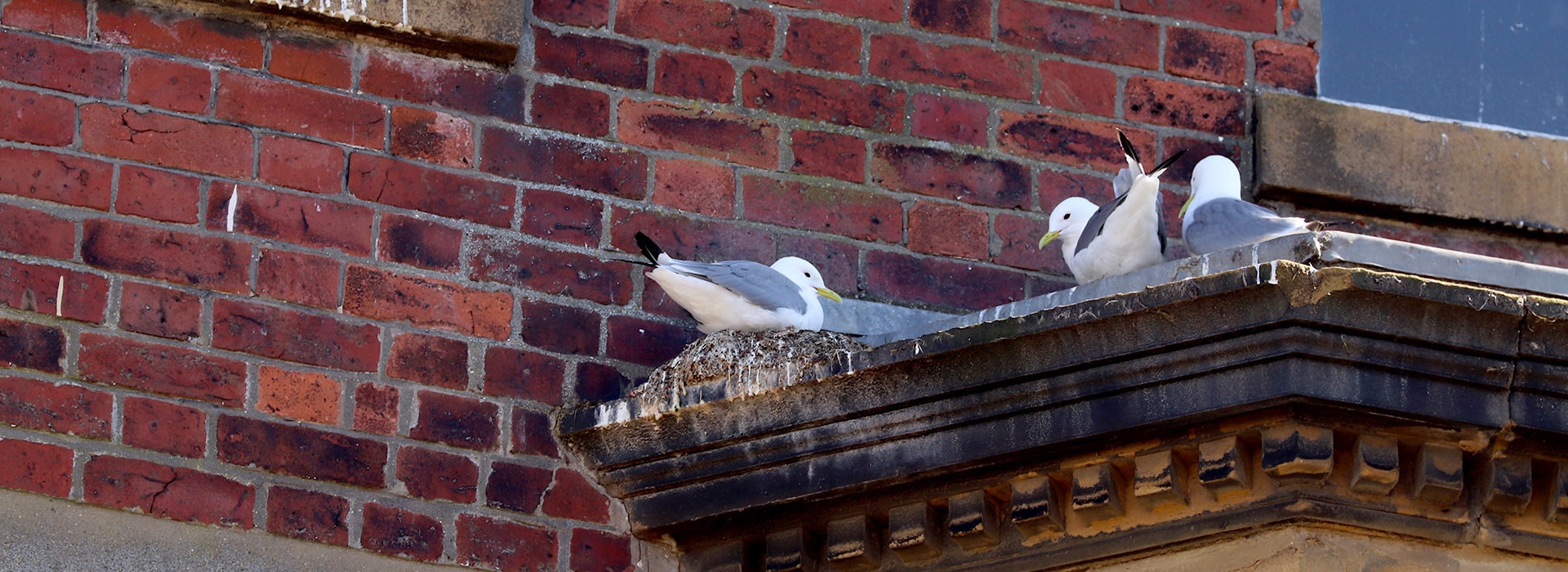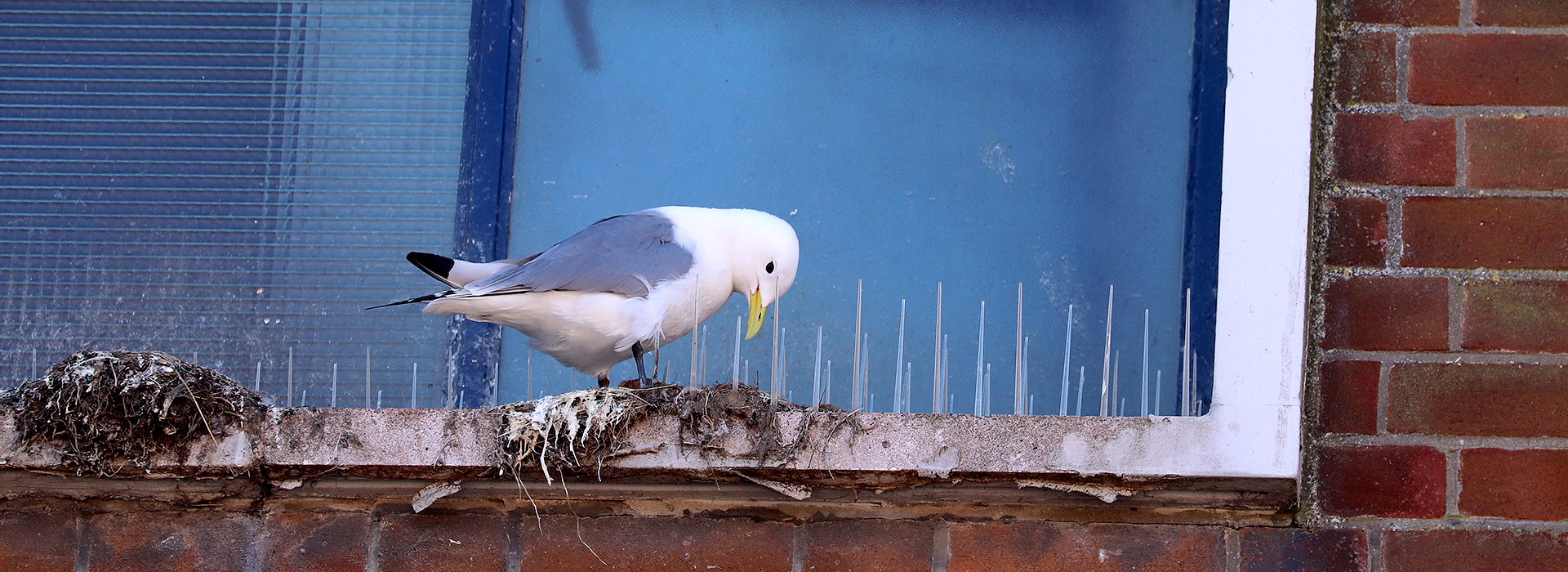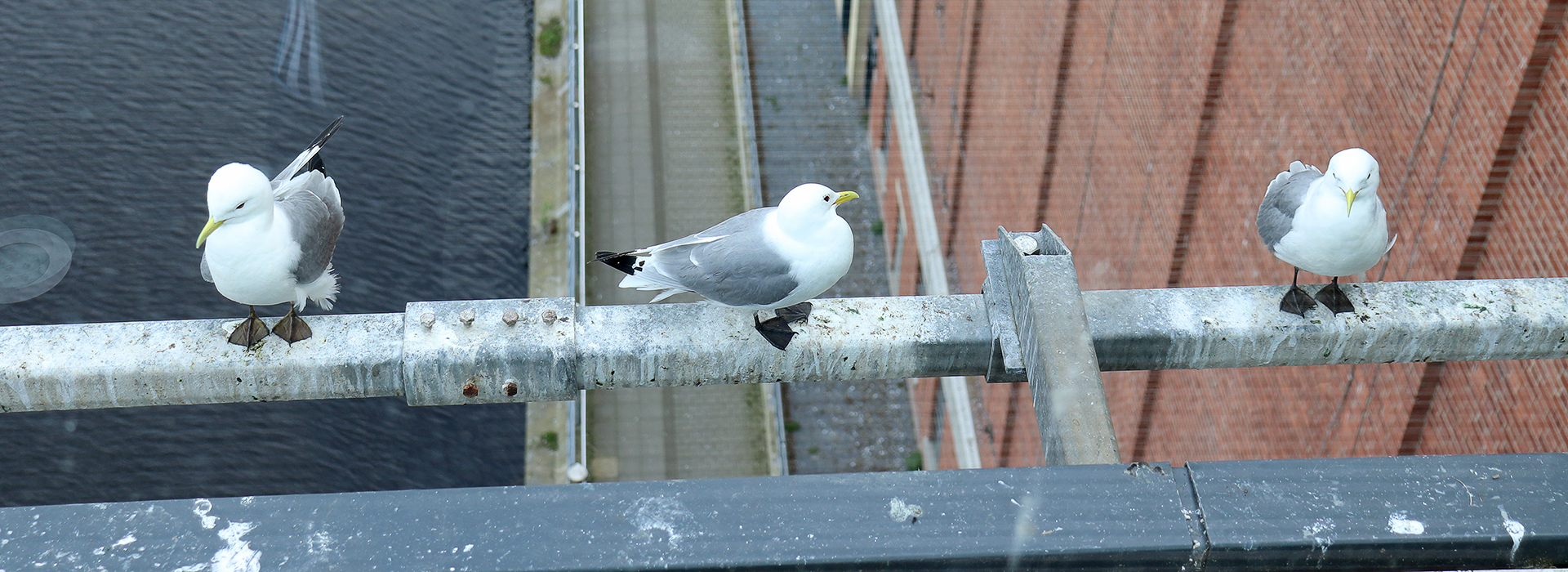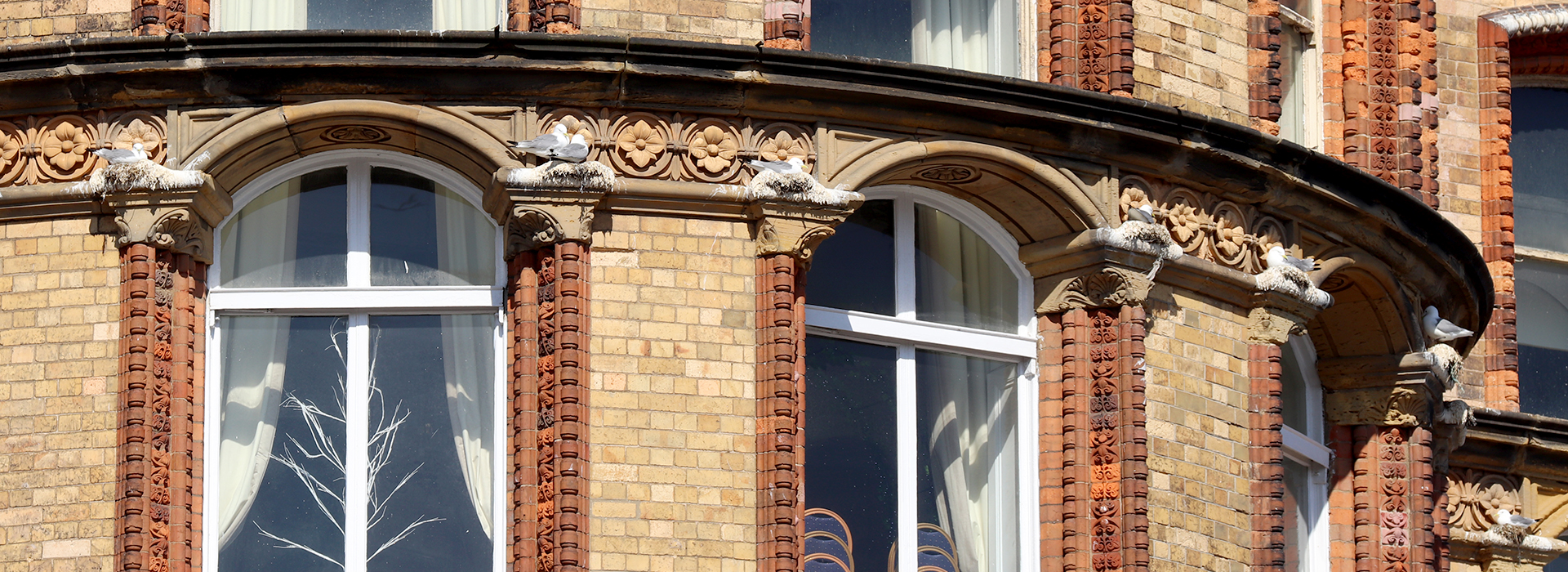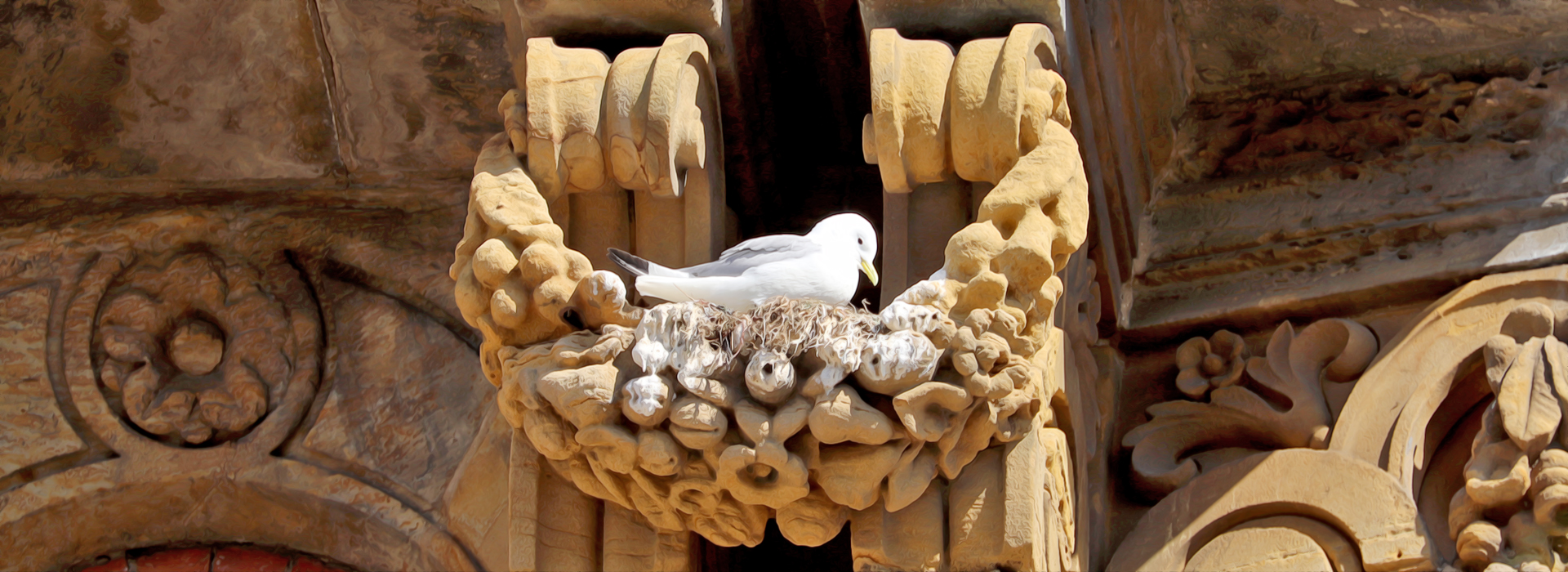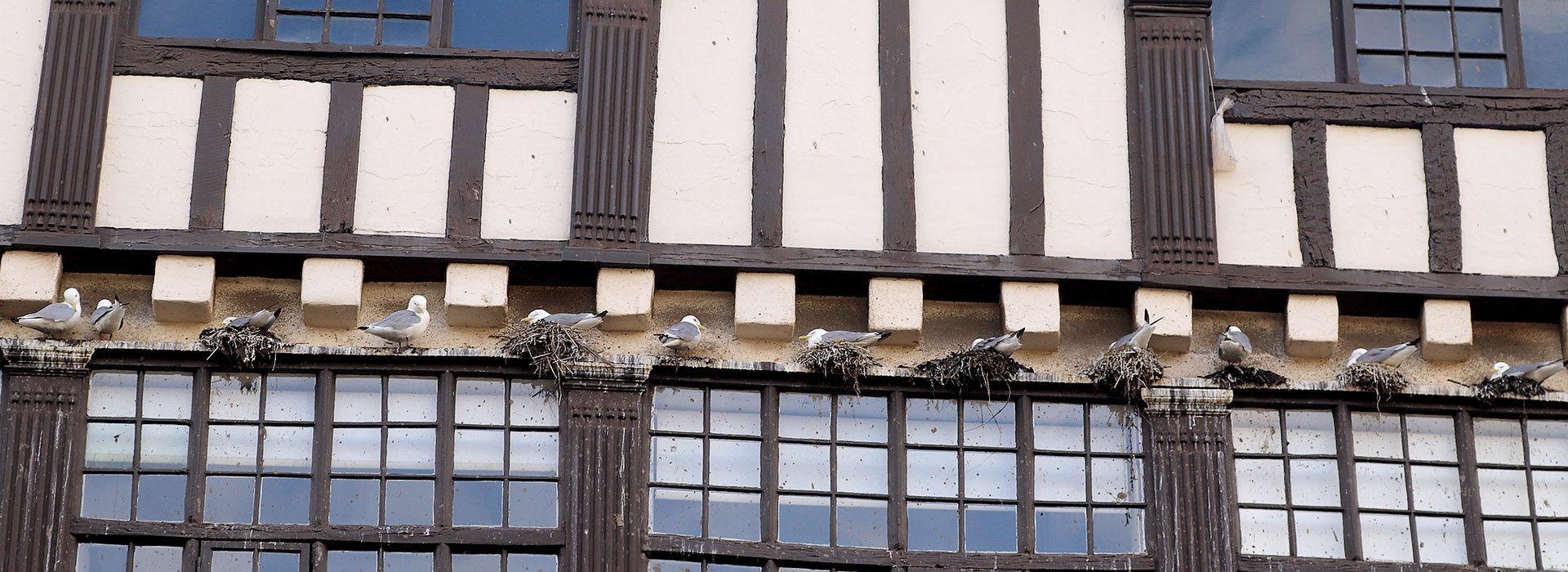Raising Awareness

-
- Celebrating Inland breeding colonies of Kittiwakes
- Networking with professionals involved in seabird
research and conservation - Supporting efforts to help protect breeding populations
of Kittiwakes and their environment - Contributing towards initiatives to help conserve all seabirds and their habitats.
Kittiwakes by Russell Boland © 2025
Our nature is in crisis!
The purpose of this website is to share information regarding a selection of breeding colonies of Kittiwakes within the UK and beyond. There is a focus on such colonies where pairs have moved away from building their nests amongst traditional coastal sites and have instead opted to move into our towns and cities.
If larger portions of Kittiwakes continue to move away from their coastal colonies and instead choose to nest more inland, then the need to raise the flag and campaign to help support them will rise. Kittiwakes are also just one species amongst many that are struggling at this time. Not just with more severe weather patterns, access to food sources and pollution; but also, with Avian Flu.
Campaigns
In some cases, their arrival has been welcomed; sadly, not everyone is keen to host a colony of Kittiwakes. This website also helps raise awareness where anti-bird deterrents have been installed on man-made structures in an attempt to deter birds nesting. Where these anti-bird deterrents have been harmful to birds’ campaigns have been organised asking for their removal. All species of Gull are protected under the » Wildlife and Countryside Act 1981
Our seabirds need your help
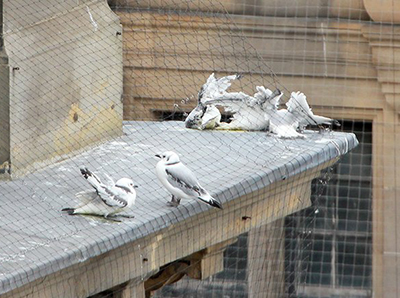
Kittiwakes are » Red-Listed Globally the species has declined by 40% since the 1970s. Red is the highest conservation priority with species needing urgent action.
Kittiwakes trapped in anti-bird netting
On the Exchange Buildings, Newcastle Quayside
in July 2018
by Paul Buskin
